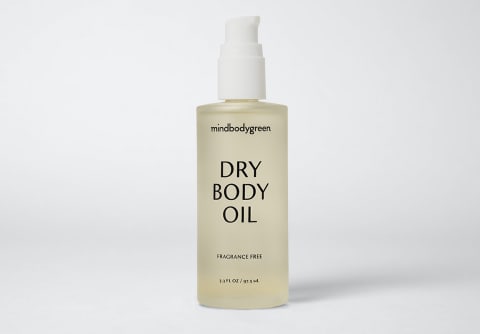Advertisement
3 Collagen-Boosting Tips For Your 30s From A Beauty Editor (Who Does Them)


If there's one thing you should care about in your 30s in regards to skin care, it's collagen. Collagen is the structural protein that keeps your skin firm and youthful. With its decline comes sagging, fine lines, and loss of suppleness.
That said, collagen decline is a natural part of life. It will happen to all of us, and there's no use in denying that fact. In fact, at some point in your late 20s, your collagen will start to decline at a rate of about 1% every year for every year thereafter1. This is why most folks start noticing signs of premature aging in their 30s—and why many people usually start focusing on preventive aging around this time.
There are many ways to support your collagen as you age. (Read: Don't panic when you hit a new decade.) Some paths are more effective than others, and you should utilize a full, holistic approach within your skin care in order to maximize your collagen production potential.
I believe that everything works in tandem and even the small, daily choices you make can have a big payoff down the line.
Want a place to start? Here are three things you can implement starting now that will help you for years to come.
Get regular facials if you can
Not everyone has access to facials, but if you can build it into your budget, professional intervention is one of the most effective ways to care for your skin and boost collagen. The pros have access to tools and treatments that you don't (no matter how many are marketed as "professional grade").
They also know how to use them effectively—so you're not damaging your skin by using an ingredient or modality that doesn't suit you.
Some of the best advice I got about this is from celebrity esthetician and dermatological nurse Natalie Aguilar on her episode of Clean Beauty School, who said: "[It's important to build] relationships with their 'skin people.' I think it's really important for people to find therapists who can take care of you as an individual."
A few of the best to look into for collagen production are LED facials, microcurrent facials, PRP facials, and chemical peels (notably those with glycolic acid). But these all come with stipulations and nuances on who they are best suited for, so consult with your skin care professional about what's your best bet. And "regular" is a loose term.
I personally do one a quarter, but I know people who are dedicated to once a month (once a week even!). And if all you can do is once or twice a year, then that's great too.
Get smart about lifestyle choices
Yes, collagen-supporting facials are going to give you that extra boost you're looking for—but if you're not making smart decisions every day, then it's all for naught. Some of the major things that can deplete collagen (and rather aggressively) are lack of sleep, prolonged and chronic stress, and dietary choices.
On the sleep and stress part, both can trigger an influx of the stress hormone cortisol. Cortisol wreaks havoc on the body and directly damages collagen in the skin. So you need to prioritize getting enough hours of rest and finding stress management practices that work for you.
We know that's easier said than done, but if you're open to new techniques to try, here are our favorite habits for better sleep hygiene and reducing anxiety.
As for nutrition, be sure to eat a robust diet full of amino acids and antioxidants. (Read about our favorite collagen-supporting foods here.) And to expedite things, you may consider a collagen supplement, which can help your body create more collagen naturally.
Research shows that collagen supplements improve skin hydration and density and reduce fine lines2. Try to find a collagen powder that contains added ingredients (such as antioxidants, like vitamins C and E) for extra support. Check out our all-time favorite collagen supplements here.
Turn to topicals you can tolerate
Obviously topical skin care products play a huge role in collagen production and preservation. The most important thing you can do is wear sunscreen regularly to protect your collagen from UV damage. It's the leading cause of skin aging—accounting for some 80% of damage3.
From there, you'll want to use topical ingredients that are shown to promote collagen production, such as vitamin C, retinol, peptides, and AHAs. Vitamin C is vital for the collagen synthesis process—plus, as an antioxidant, it can protect your collagen layer from free radicals.
Retinol works with your skin's retinoid receptors to upregulate collagen production over time. And glycolic acid has been shown to spur collagen4 by engaging your skin's wound response. There's less research on peptides, but a growing body of evidence shows that some select options can encourage collagen production5 in the skin, too.
But here's the catch: Only use these if you can tolerate them. If you use them at concentrations that overwhelm your skin, they'll end up causing more damage to your collagen layer rather than helping.
Vitamin C, for example, is a sensitizing ingredient for many skin types—especially when using potent versions at potent doses: If you find that 20% vitamin C makes your skin flush or irritated, you're better off finding a lower percentage or a more mild version.
Retinol, too, is notoriously hard for folks to handle: Stick to encapsulated versions or only use it a few times a week, max.
The takeaway
Collagen decline happens. We can't avoid it, and we shouldn't be ashamed of it. But there are ways to help your skin as you age so your natural collagen levels remain supported. And for more healthy aging tips, check out our guide to skin longevity.
